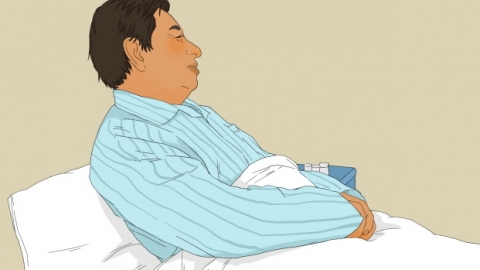How to Care for Patients After Interventional Therapy for Liver Cancer
After interventional therapy for liver cancer, main post-treatment care methods include monitoring the wound condition, ensuring adequate rest, adjusting diet, managing pain, and regular follow-up visits. If any abnormalities occur, timely medical consultation is recommended. Detailed explanations are as follows:

1. Monitor the wound condition: After interventional therapy for liver cancer, patients will have a small puncture wound. Close attention should be paid to this puncture site for any signs of bleeding or infection. Immediate medical attention should be sought upon detection of any abnormality to prevent complications.
2. Ensure adequate rest: Patients undergoing interventional therapy need sufficient rest and should avoid strenuous exercise and fatigue. Sufficient rest helps reduce physical strain and promotes recovery.
3. Adjust diet: The patient's diet should be light and easily digestible, avoiding excessive fat intake, which could burden the liver. At the same time, moderate intake of high-quality protein helps promote wound healing and recovery. Additionally, drinking plenty of water aids in excretion and helps prevent constipation.
4. Pain management: Patients may experience some pain or discomfort after interventional therapy. Mild pain can be relieved through non-pharmacological methods such as deep breathing exercises. For more severe pain, patients should take analgesic medications as directed by their physician, though prolonged or excessive use should be avoided to prevent drug resistance or dependence.
5. Regular follow-ups: After interventional therapy, patients should schedule regular hospital visits for follow-up examinations to monitor treatment effectiveness. Additionally, medications should be taken as prescribed to prevent complications such as infection and inflammation. It is important to avoid using inappropriate medications or unverified remedies to ensure the smooth progress of treatment.
Successful implementation of these nursing measures requires the joint efforts of both patients and their families, to ensure a smooth recovery for patients after interventional therapy for liver cancer.






